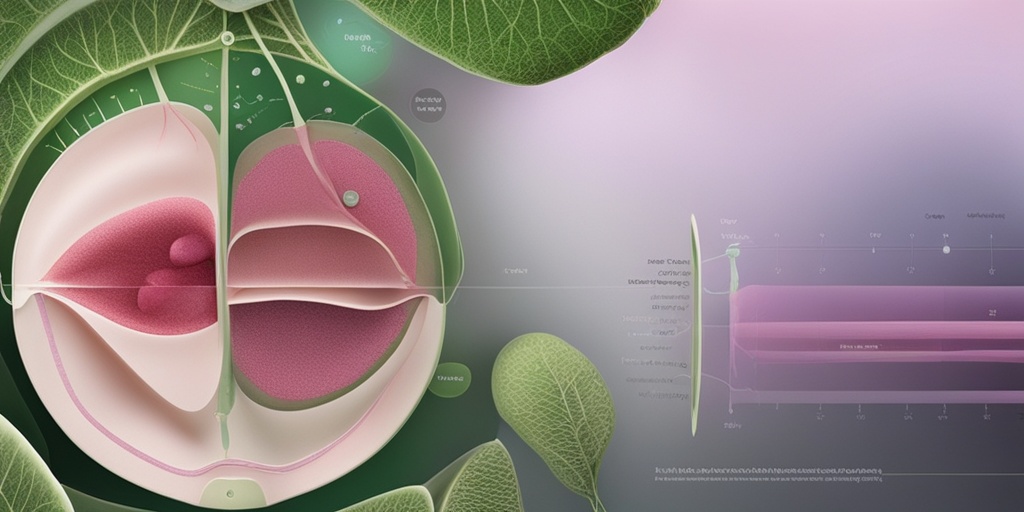“`html
What Is Miscarriage?
Miscarriage, often referred to as spontaneous abortion, is the natural loss of a pregnancy before the 20th week. It is a heartbreaking experience that affects many individuals and couples, with estimates suggesting that approximately 10-20% of known pregnancies end in miscarriage. Understanding what miscarriage is can help those affected navigate their emotions and seek the necessary support.
Defining Miscarriage
In medical terms, a miscarriage occurs when a fetus is unable to survive outside the womb. This can happen for various reasons, including genetic abnormalities, hormonal imbalances, or issues with the uterus. It’s important to note that a miscarriage is not caused by anything the mother did or did not do; it is often a result of factors beyond anyone’s control.
Types of Miscarriage
There are several types of miscarriage, each with its own characteristics:
- Threatened Miscarriage: This occurs when there are signs of potential miscarriage, such as bleeding or cramping, but the pregnancy may still continue.
- Complete Miscarriage: This happens when all pregnancy tissue has been expelled from the uterus.
- Incomplete Miscarriage: In this case, some tissue remains in the uterus, which may require medical intervention.
- Missed Miscarriage: This occurs when the fetus has died but has not been expelled from the uterus, often discovered during a routine ultrasound.
Miscarriage Rates by Week
Miscarriage rates can vary significantly depending on the gestational age of the pregnancy. For instance:
- At 5 weeks, the risk of miscarriage is around 10-15%.
- By 6-7 weeks, the risk decreases to about 5%.
- After the 8th week, the risk continues to decline, with rates dropping to less than 1% by the end of the first trimester.
Miscarriage Symptoms
Recognizing the symptoms of miscarriage is crucial for early intervention and emotional support. While every individual’s experience may vary, there are common signs to be aware of:
Common Symptoms of Miscarriage
- Vaginal Bleeding: Light spotting can be normal in early pregnancy, but heavy bleeding or passing large clots may indicate a miscarriage.
- Abdominal Cramping: Mild cramping can occur in early pregnancy, but severe cramps, especially if accompanied by bleeding, should be evaluated by a healthcare provider.
- Loss of Pregnancy Symptoms: A sudden decrease in pregnancy symptoms, such as breast tenderness or nausea, can be a sign of miscarriage.
When to Seek Medical Attention
If you experience any of the above symptoms, it is essential to contact your healthcare provider. Early evaluation can help determine the cause of the symptoms and provide necessary care. Remember, experiencing these symptoms does not always mean a miscarriage is occurring, but it is better to be cautious.
Emotional Impact of Miscarriage
The emotional toll of a miscarriage can be profound. Feelings of grief, sadness, and confusion are common. It’s important to allow yourself to grieve and seek support from loved ones or professionals. Resources like Yesil Health AI can provide evidence-based information and support for those navigating the complexities of miscarriage.
In conclusion, understanding miscarriage and its symptoms can empower individuals and couples to seek the help they need during a challenging time. Remember, you are not alone, and support is available. 💔
“`

“`html
Types of Miscarriage
Experiencing a miscarriage can be one of the most challenging events in a person’s life. Understanding the different types of miscarriage can help individuals and couples navigate their emotions and seek appropriate support. Here are the primary types of miscarriage:
1. Threatened Miscarriage
A threatened miscarriage occurs when there are signs that a miscarriage may happen, but the pregnancy is still viable. Symptoms often include light bleeding or spotting and mild cramping. Many women go on to have healthy pregnancies after experiencing a threatened miscarriage.
2. Complete Miscarriage
A complete miscarriage happens when all the pregnancy tissue is expelled from the uterus. This type is often confirmed through ultrasound, and symptoms may include heavy bleeding and severe cramping. Once the tissue is expelled, the body typically returns to its normal state, and further medical intervention may not be necessary.
3. Incomplete Miscarriage
In an incomplete miscarriage, some of the pregnancy tissue remains in the uterus. This can lead to ongoing bleeding and cramping. Medical intervention, such as medication or a surgical procedure, may be required to remove the remaining tissue and prevent complications.
4. Missed Miscarriage
A missed miscarriage occurs when the fetus has died but has not been expelled from the uterus. Often, there are no symptoms, and it may only be discovered during a routine ultrasound. Women may experience symptoms like a lack of pregnancy symptoms or a decrease in pregnancy symptoms.
5. Recurrent Miscarriage
Recurrent miscarriage is defined as having two or more consecutive miscarriages. This can be emotionally and physically taxing for individuals and couples. Various factors, including genetic, anatomical, and hormonal issues, can contribute to recurrent miscarriages.
Causes of Miscarriage
Understanding the causes of miscarriage can provide clarity and help in coping with the emotional aftermath. While many factors can contribute to a miscarriage, here are some of the most common causes:
1. Chromosomal Abnormalities
One of the leading causes of miscarriage is chromosomal abnormalities in the fetus. These abnormalities often occur during fertilization and can prevent the embryo from developing properly. It’s important to note that these issues are usually random and not indicative of any underlying health problems in the parents.
2. Hormonal Imbalances
Hormonal imbalances, particularly related to progesterone, can affect the ability of the uterus to support a pregnancy. Conditions such as polycystic ovary syndrome (PCOS) or thyroid disorders can lead to hormonal issues that increase the risk of miscarriage.
3. Uterine Abnormalities
Structural issues with the uterus, such as fibroids, polyps, or a septate uterus, can interfere with implantation and the growth of the fetus. These abnormalities can be diagnosed through imaging techniques like ultrasound or hysteroscopy.
4. Chronic Health Conditions
Chronic health conditions, such as diabetes, hypertension, and autoimmune disorders, can increase the risk of miscarriage. Proper management of these conditions before and during pregnancy is crucial for reducing risks.
5. Environmental Factors
Exposure to certain environmental factors, such as toxins, drugs, and infections, can also contribute to miscarriage. It’s essential for individuals trying to conceive to be aware of their surroundings and minimize exposure to harmful substances.
6. Age
Age plays a significant role in miscarriage rates. Women over the age of 35 have a higher risk of miscarriage due to a decrease in egg quality and an increase in chromosomal abnormalities. Understanding this risk can help in planning and seeking appropriate medical advice.
While the experience of miscarriage can be devastating, knowing the types and causes can empower individuals and couples to seek the right support and care. Remember, you are not alone, and there are resources available to help you through this difficult time. 💖
“`

“`html
Risk Factors for Miscarriage
Understanding the risk factors for miscarriage is crucial for expectant parents. While many pregnancies progress without complications, certain factors can increase the likelihood of experiencing a miscarriage. Here, we’ll explore some of the most common risk factors associated with miscarriage.
Age
One of the most significant risk factors is the age of the pregnant individual. Women over the age of 35 have a higher risk of miscarriage compared to younger women. This is largely due to the decline in egg quality and quantity as women age. In fact, studies show that the risk of miscarriage increases to about 20% for women aged 35-39 and can rise to 35% or more for those over 40.
Previous Miscarriages
If you have experienced a miscarriage in the past, your risk of having another one increases. Women who have had two or more consecutive miscarriages are often diagnosed with recurrent miscarriage, which can be linked to various underlying health issues.
Chronic Health Conditions
Certain chronic health conditions can also elevate the risk of miscarriage. These include:
- Diabetes: Poorly controlled diabetes can lead to complications in pregnancy.
- Thyroid Disorders: Both hypothyroidism and hyperthyroidism can affect pregnancy outcomes.
- Autoimmune Disorders: Conditions like lupus can increase the risk of miscarriage.
Genetic Factors
Genetic abnormalities in the fetus are a common cause of miscarriage, particularly in the first trimester. These abnormalities can arise from issues with the chromosomes, which may be inherited from one or both parents. Genetic testing can sometimes help identify these issues.
Environmental Factors
Exposure to certain environmental factors can also contribute to the risk of miscarriage. These include:
- Toxins: Exposure to harmful substances like pesticides, heavy metals, and industrial chemicals.
- Radiation: High levels of radiation exposure can be detrimental during pregnancy.
Lifestyle Choices
Your lifestyle choices can significantly impact your pregnancy. Factors such as smoking, excessive alcohol consumption, and drug use are linked to an increased risk of miscarriage. Maintaining a healthy lifestyle, including a balanced diet and regular exercise, can help mitigate these risks.
Infections
Certain infections can also pose a risk during pregnancy. Infections such as listeria, toxoplasmosis, and sexually transmitted infections (STIs) can lead to complications, including miscarriage. It’s essential to seek medical advice if you suspect you have an infection.
Diagnosis of Miscarriage
Diagnosing a miscarriage can be an emotionally challenging process. If you suspect you are experiencing a miscarriage, it’s important to seek medical attention promptly. Here’s how healthcare providers typically diagnose a miscarriage.
Symptoms to Watch For
Common symptoms of miscarriage include:
- Vaginal Bleeding: Light spotting can be normal in early pregnancy, but heavy bleeding may indicate a miscarriage.
- Cramping: Abdominal cramps that feel similar to menstrual cramps can be a sign.
- Passage of Tissue: The presence of tissue or clots in vaginal discharge can indicate a miscarriage.
Ultrasound Examination
One of the primary methods for diagnosing a miscarriage is through an ultrasound examination. This imaging technique allows healthcare providers to visualize the uterus and check for the presence of a fetal heartbeat. If no heartbeat is detected, it may indicate a miscarriage, especially if the pregnancy is at a stage where a heartbeat should be present.
Blood Tests
Blood tests can also play a crucial role in diagnosing a miscarriage. Healthcare providers may check levels of the hormone hCG (human chorionic gonadotropin), which is produced during pregnancy. A declining hCG level can suggest that a miscarriage is occurring. Additionally, blood tests can help identify any underlying health issues that may have contributed to the miscarriage.
Pelvic Examination
A pelvic examination may be performed to assess the condition of the cervix and uterus. If the cervix is dilated or if there is any tissue present, it may indicate a miscarriage. This examination can provide valuable information to healthcare providers.
Follow-Up Care
After a diagnosis of miscarriage, follow-up care is essential. This may include monitoring for any complications, discussing emotional support options, and planning for future pregnancies. It’s important to remember that experiencing a miscarriage is not uncommon, and many individuals go on to have healthy pregnancies in the future.
Understanding the risk factors and diagnosis of miscarriage can empower individuals and couples as they navigate their reproductive health journey. If you have concerns or questions, don’t hesitate to reach out to a healthcare professional for guidance and support. 💖
“`

“`html
Emotional Impact of Miscarriage
Experiencing a miscarriage can be one of the most heart-wrenching events in a person’s life. The emotional toll it takes can be profound and multifaceted, affecting not just the individual but also their partner and family. Understanding the emotional impact is crucial for healing and recovery.
Understanding Grief and Loss
Grief is a natural response to loss, and a miscarriage can trigger a wide range of emotions, including:
- Sadness: A deep sense of sorrow is common, as the hopes and dreams for the future are suddenly dashed.
- Anger: Some may feel anger towards themselves, their bodies, or even the universe for the loss.
- Guilt: Many individuals grapple with feelings of guilt, questioning if they could have done something differently to prevent the miscarriage.
- Isolation: The feeling of being alone in their grief can be overwhelming, especially if friends or family members have not experienced a similar loss.
Physical Symptoms and Emotional Connection
The physical symptoms of a miscarriage, such as miscarriage blood or miscarriage blood clots, can further complicate the emotional experience. The physical pain often intertwines with emotional pain, making it difficult to process the loss. It’s essential to acknowledge that both aspects are valid and deserve attention.
Recurrent Miscarriage and Its Emotional Toll
For those who experience multiple losses, known as recurrent miscarriage, the emotional impact can be even more significant. The cycle of hope and despair can lead to:
- Increased Anxiety: The fear of another loss can create a constant state of anxiety.
- Depression: Prolonged grief can lead to clinical depression, requiring professional help.
- Strain on Relationships: Partners may cope differently, leading to misunderstandings and emotional distance.
Support and Resources for Recovery
Recovering from a miscarriage is a journey that requires support and understanding. Fortunately, there are numerous resources available to help individuals navigate this challenging time.
Seeking Professional Help
One of the most effective ways to cope with the emotional aftermath of a miscarriage is to seek professional help. Therapists and counselors specializing in grief can provide a safe space to express feelings and work through the pain. They can also offer coping strategies tailored to individual needs.
Support Groups and Community Resources
Connecting with others who have experienced similar losses can be incredibly healing. Support groups, both in-person and online, provide a platform for sharing stories and feelings. Some popular resources include:
- Online Forums: Websites like Reddit have communities where individuals share their experiences and offer support.
- Local Support Groups: Many hospitals and community centers offer support groups for those who have experienced a miscarriage.
- Books and Literature: Reading about others’ experiences can help individuals feel less isolated. Books on grief and loss can provide comfort and understanding.
Self-Care Practices
In addition to seeking external support, self-care is vital for recovery. Here are some self-care practices that can aid in healing:
- Journaling: Writing down thoughts and feelings can be a therapeutic way to process emotions.
- Mindfulness and Meditation: Practicing mindfulness can help individuals stay grounded and manage anxiety.
- Physical Activity: Engaging in gentle exercise can boost mood and promote overall well-being.
Communicating with Loved Ones
It’s essential to communicate openly with partners and family members about feelings and needs. Sharing the emotional burden can foster understanding and strengthen relationships. Remember, it’s okay to ask for help and to express what you need during this difficult time.
In conclusion, the emotional impact of a miscarriage is profound, but with the right support and resources, healing is possible. Whether through professional help, community support, or self-care practices, individuals can find their way through the grief and emerge stronger.
“`

“`html
Frequently Asked Questions about Miscarriage
What is a Miscarriage?
A miscarriage is the spontaneous loss of a pregnancy before the 20th week. It is often referred to as a spontaneous abortion and can occur for various reasons, including genetic abnormalities, hormonal issues, or health conditions of the mother.
What are the common miscarriage symptoms?
Common symptoms of a miscarriage include:
- Vaginal bleeding or spotting
- Cramping or abdominal pain
- Fluid or tissue passing from the vagina
- Decrease in pregnancy symptoms, such as breast tenderness
What does miscarriage blood look like?
During a miscarriage, the blood may appear bright red or dark brown. It can be accompanied by clots or tissue. If you experience significant bleeding, it is important to seek medical attention.
What are the miscarriage rates by week?
The risk of miscarriage varies by week of pregnancy:
- Week 1-4: Approximately 10-20%
- Week 5-6: Approximately 20-30%
- Week 7-12: Approximately 5-10%
- After week 12: Less than 5%
What is the meaning of miscarriage?
The term miscarriage refers to the natural termination of a pregnancy. It is a common occurrence, affecting many women, and can be a deeply emotional experience.
What are the risks of miscarriage by week?
The risk of miscarriage decreases as the pregnancy progresses. Factors such as maternal age, health conditions, and lifestyle choices can also influence the risk.
Can I have a miscarriage at 5 weeks?
Yes, it is possible to experience a miscarriage at 5 weeks. Early miscarriages are quite common and often occur due to chromosomal abnormalities.
What should I do if I suspect a miscarriage?
If you suspect you are having a miscarriage, it is important to contact your healthcare provider. They can provide guidance and support, as well as perform necessary examinations.
What are the post miscarriage symptoms?
After a miscarriage, women may experience:
- Bleeding that can last for several days
- Cramping or abdominal pain
- Emotional distress or grief
Can I get pregnant after a miscarriage?
Yes, many women go on to have healthy pregnancies after a miscarriage. It is generally recommended to wait until you feel emotionally and physically ready before trying again.
What is a missed miscarriage?
A missed miscarriage occurs when the fetus has died but the body does not recognize the loss and continues to carry the pregnancy. This can lead to a lack of typical miscarriage symptoms.
How can I cope with the emotional impact of a miscarriage?
Coping with a miscarriage can be challenging. It is important to allow yourself to grieve and seek support from friends, family, or professionals if needed. Remember, you are not alone in this experience.
“`




